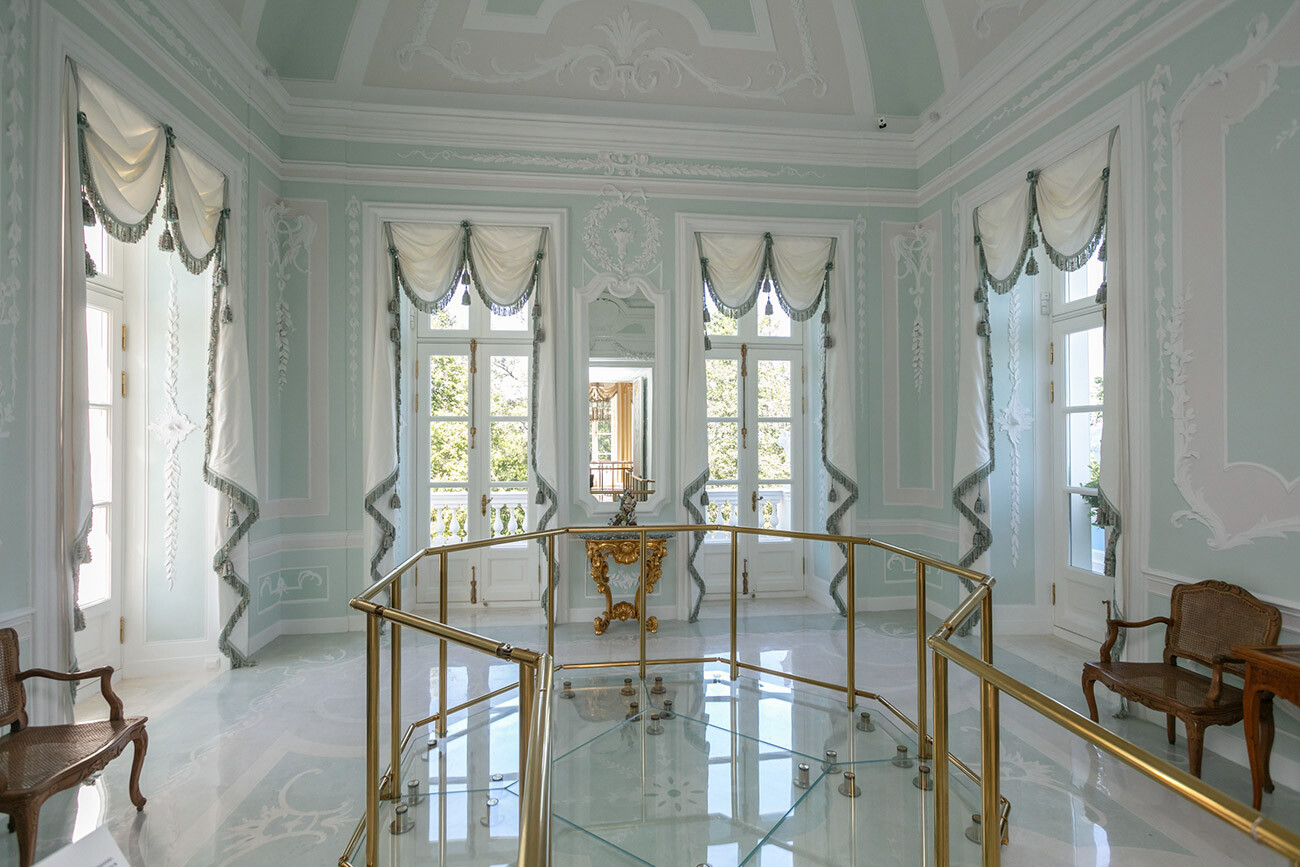What the first Russian ‘roller coaster’ was like (PHOTOS)
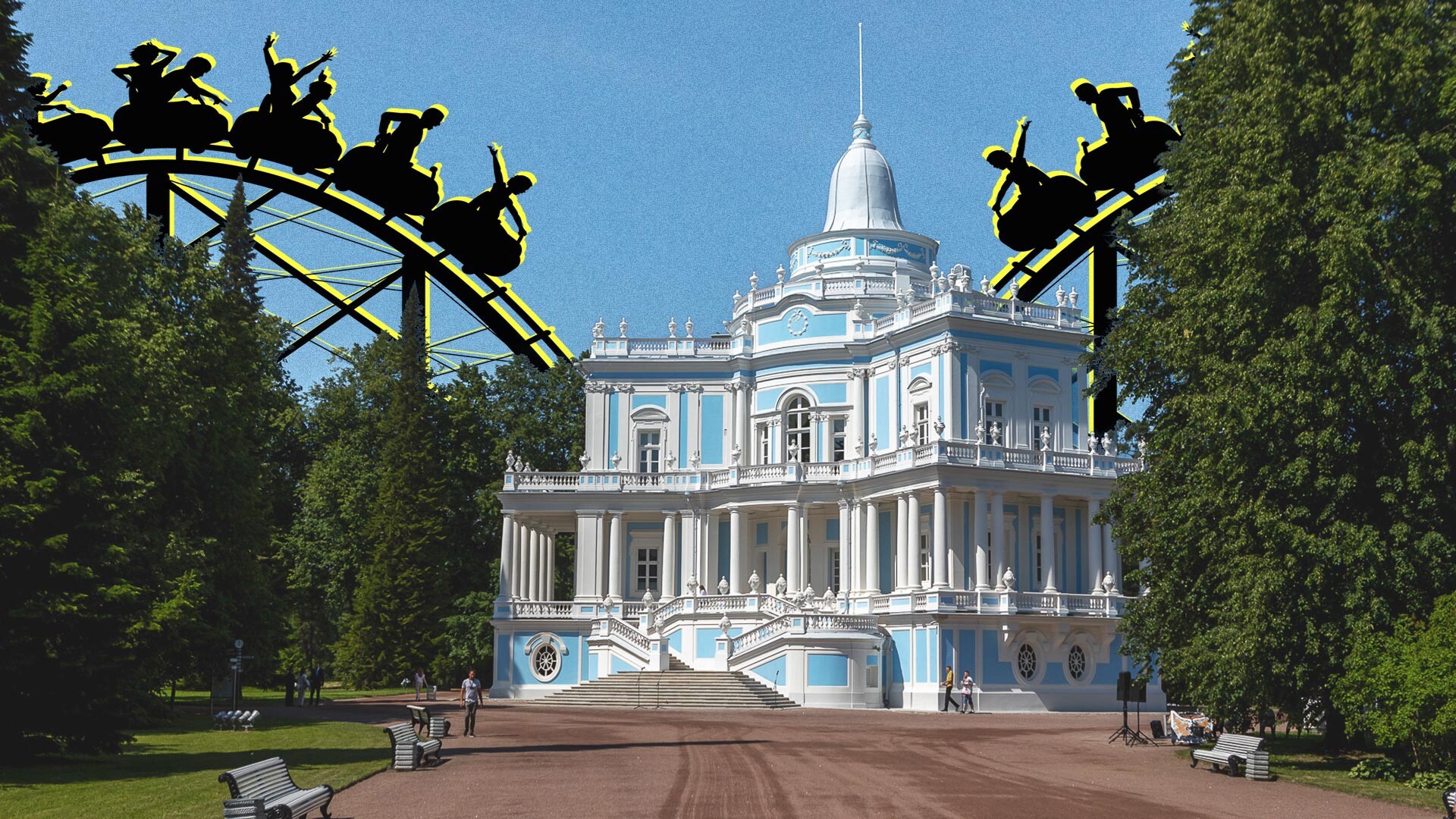
Catherine the Great knew how to party! In Oranienbaum, not far from the official Peterhof countryside residence, she had her “own dacha”. Well, it’s not the kind of dacha you would imagine, but rather a huge park and palace ensemble with lots of leisure pavilions and activities.
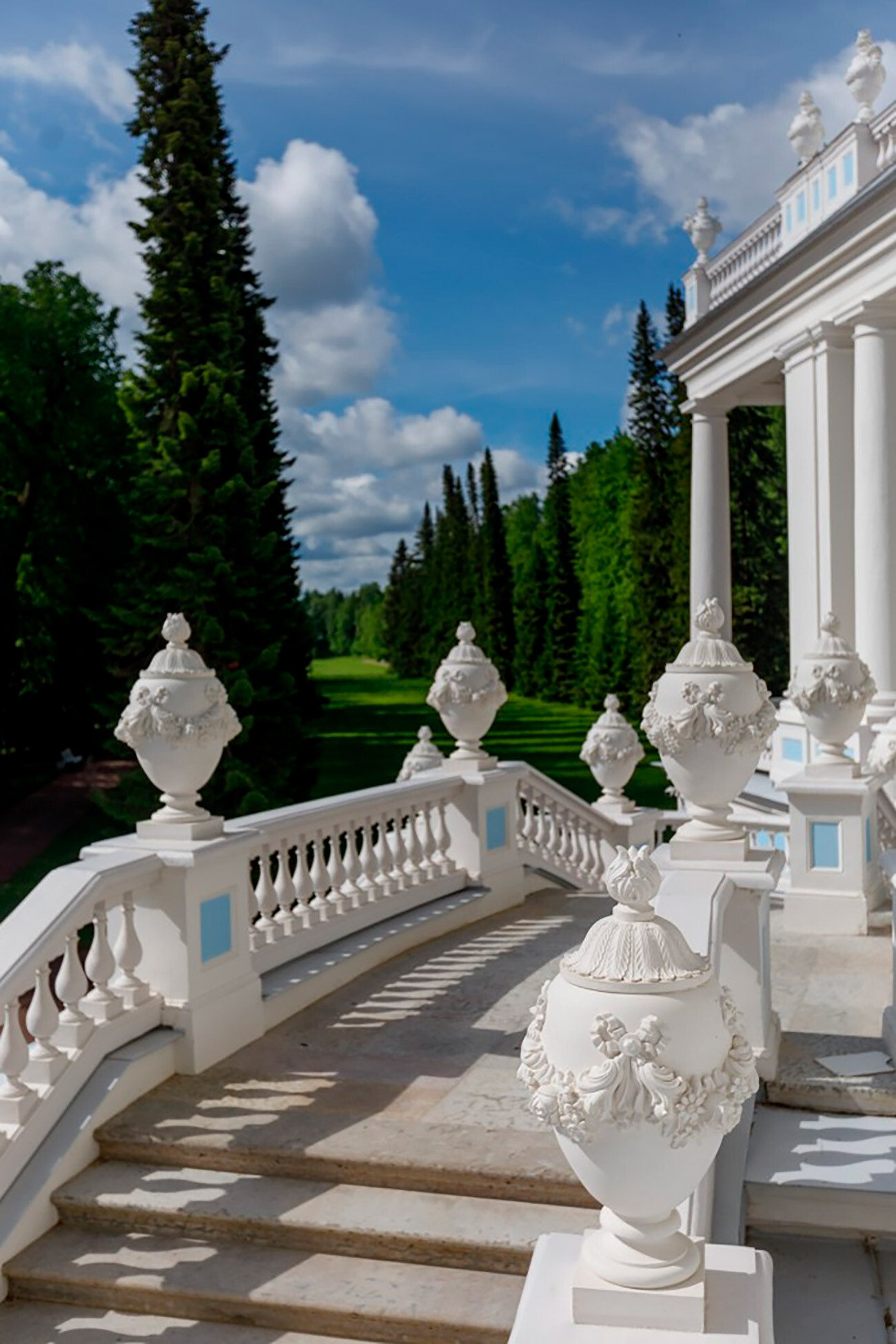
One of the most incredible things that was there was a sled ride mountain, constructed for summer races. It was an ancient Russian tradition to have a winter sled, especially on holidays - and such winter roller coasters were a common thing in the tsar’s residences throughout the whole 18th century. But, why would anyone deny themselves the joy of sledding just because it’s not winter outside! After all, the all-powerful Catherine could do anything she wanted!
 A reconstruction of the ‘mountains’
A reconstruction of the ‘mountains’
The structures for summer sledding were designed and built for Catherine the Great by mechanic and engineer Andrei Nartov in the 1760s and had no analogues. The first ever summer ‘Russian mountains’ (Sliding Hill, or Katalnaya gorka) looked like a huge wooden ramp with three tracks more than six meters wide.
The carts went down the middle track and then followed four slides going up and down. The carts were moving forward by inertia more than 500 meters in total. After the ride, the carts were hoisted back atop along the side tracks with a special mechanism that was powered by horses.
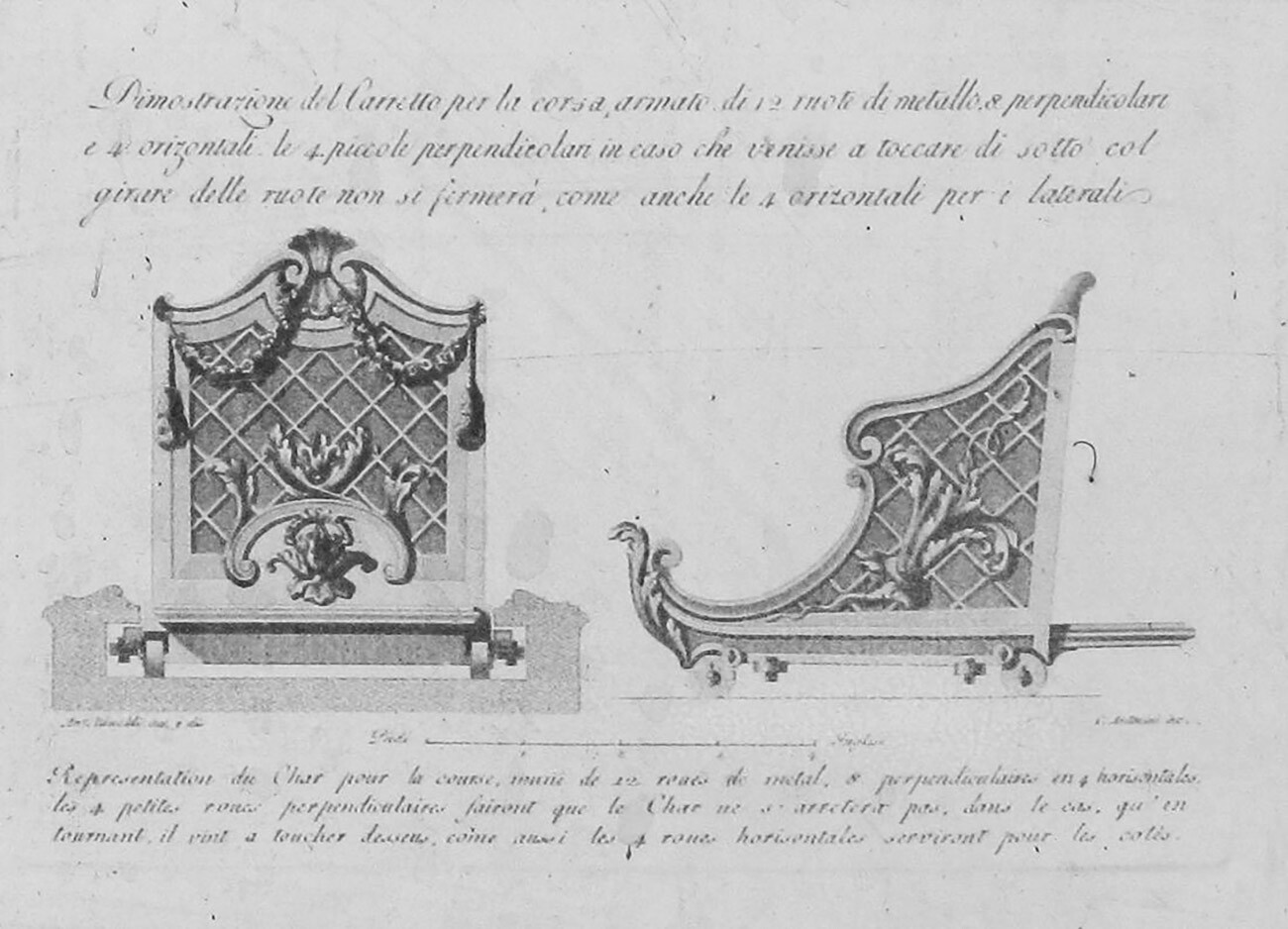
The carts themselves were objects of art. They looked like chariots and gondolas and were decorated richly with gold. There was a covered colonnade alongside the whole track, where the Empress’s guests could have a walk and watch others taking a ride.
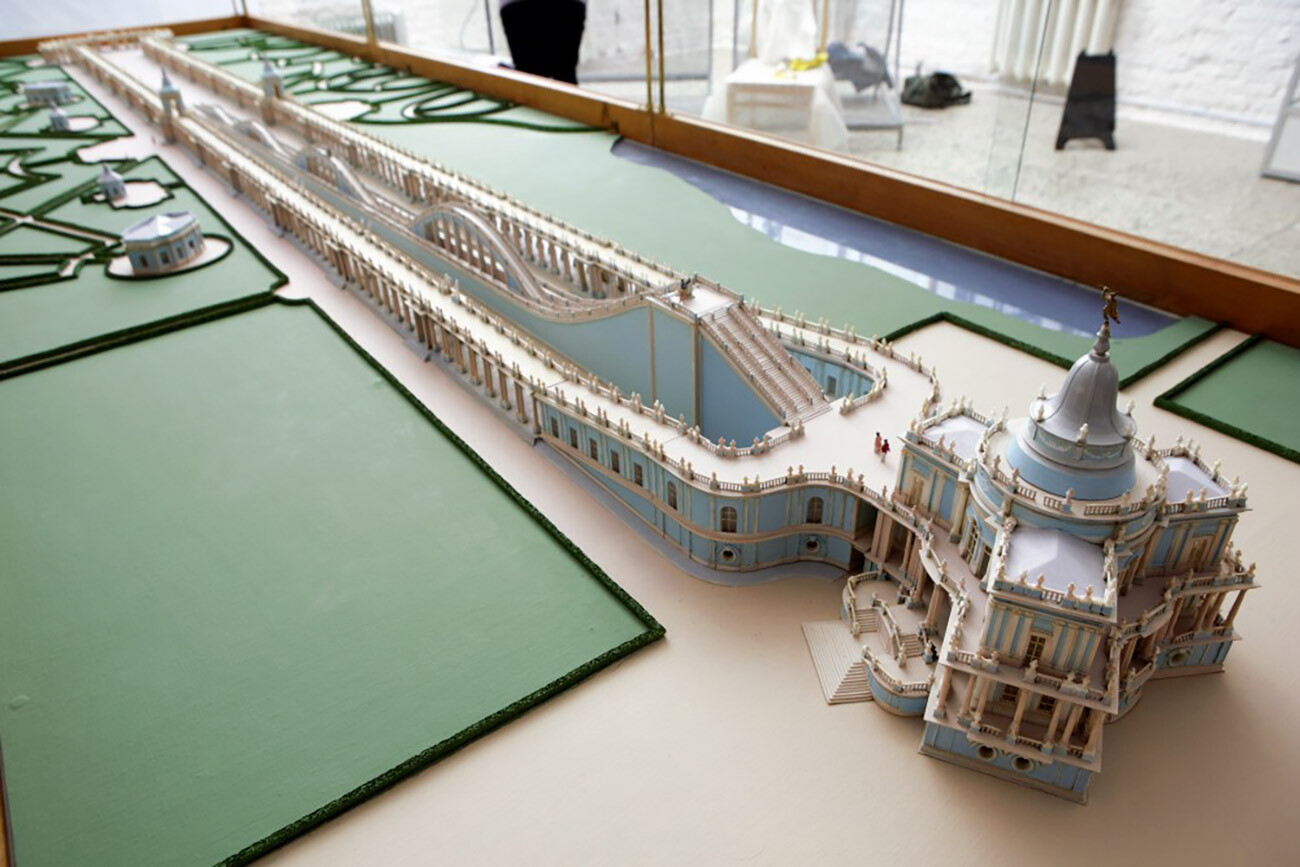 A reconstruction of the ‘mountains’
A reconstruction of the ‘mountains’
People only enjoyed the construction for a few years after Catherine’s death, as, in 1801, the mountains began to slowly deteriorate, due to the lack of attention and finances (the new emperor had his own interests and hobbies, as well as his own residence). Eventually, the colonnades collapsed in 1813 and the ruins were dismantled in the late 1850s.
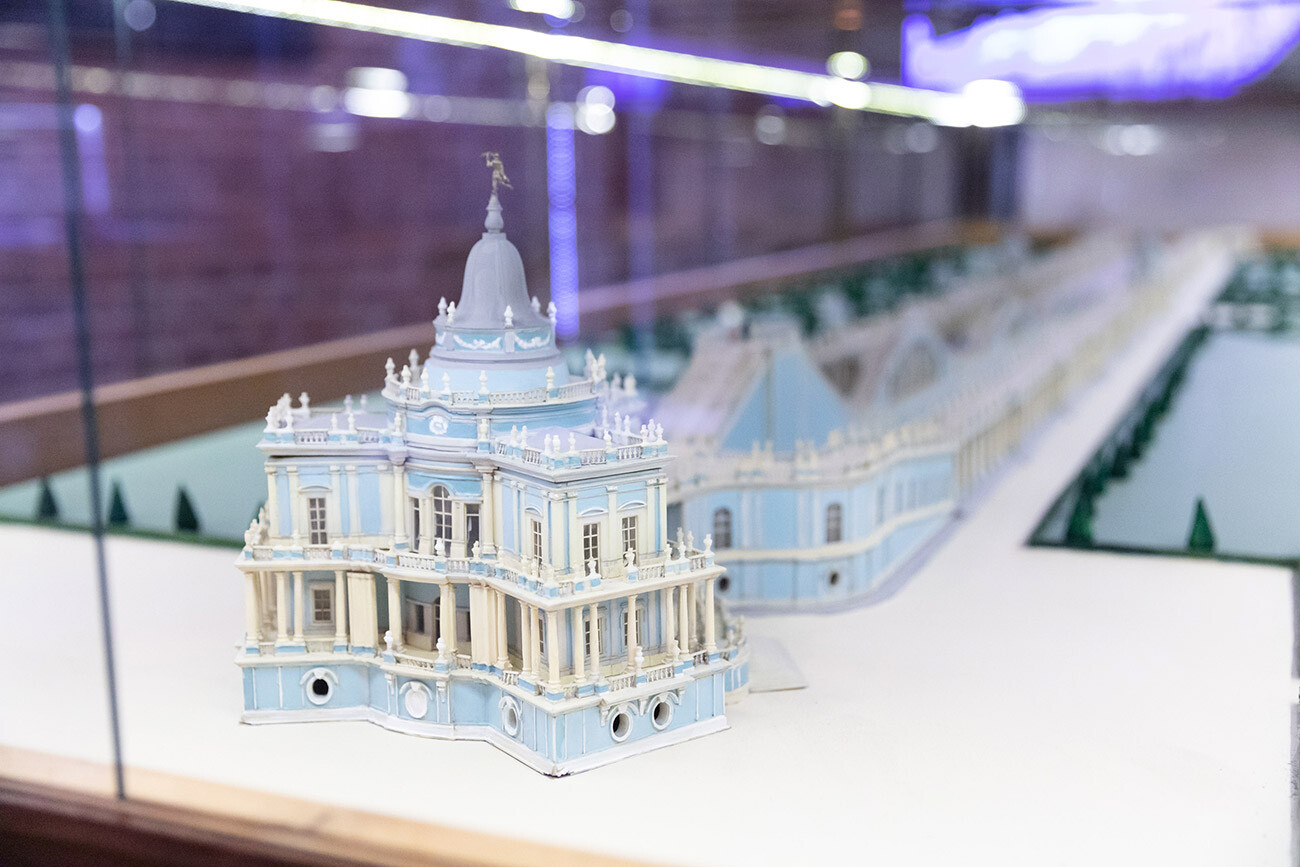 A model of the ‘Russian mountains’ pavilion
A model of the ‘Russian mountains’ pavilion
But what remained until our days is a splendid pavilion, a part of the ‘Russian mountains’ complex. In fact, people would get into carts and exit the sled from the pavilion’s balcony situated 20 meters high.
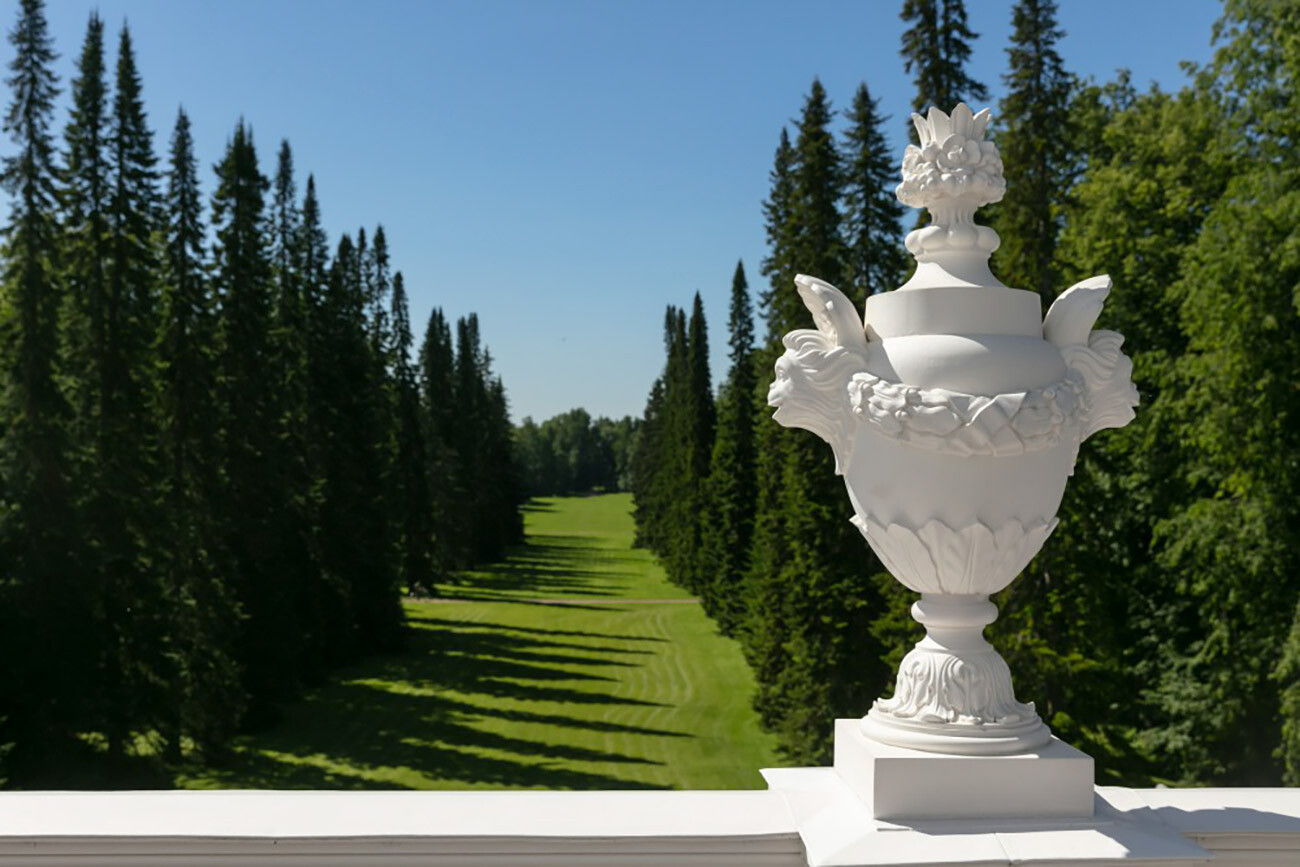 The place where the sled complex used to be (the pine trees alley remained from the tsarist times, as well)
The place where the sled complex used to be (the pine trees alley remained from the tsarist times, as well)
The pavilion was built by Italian architect Antonio Rinaldi in the mix of baroque and early classical style and was perceived by the contemporaries as one of the most gorgeous buildings of its kind.
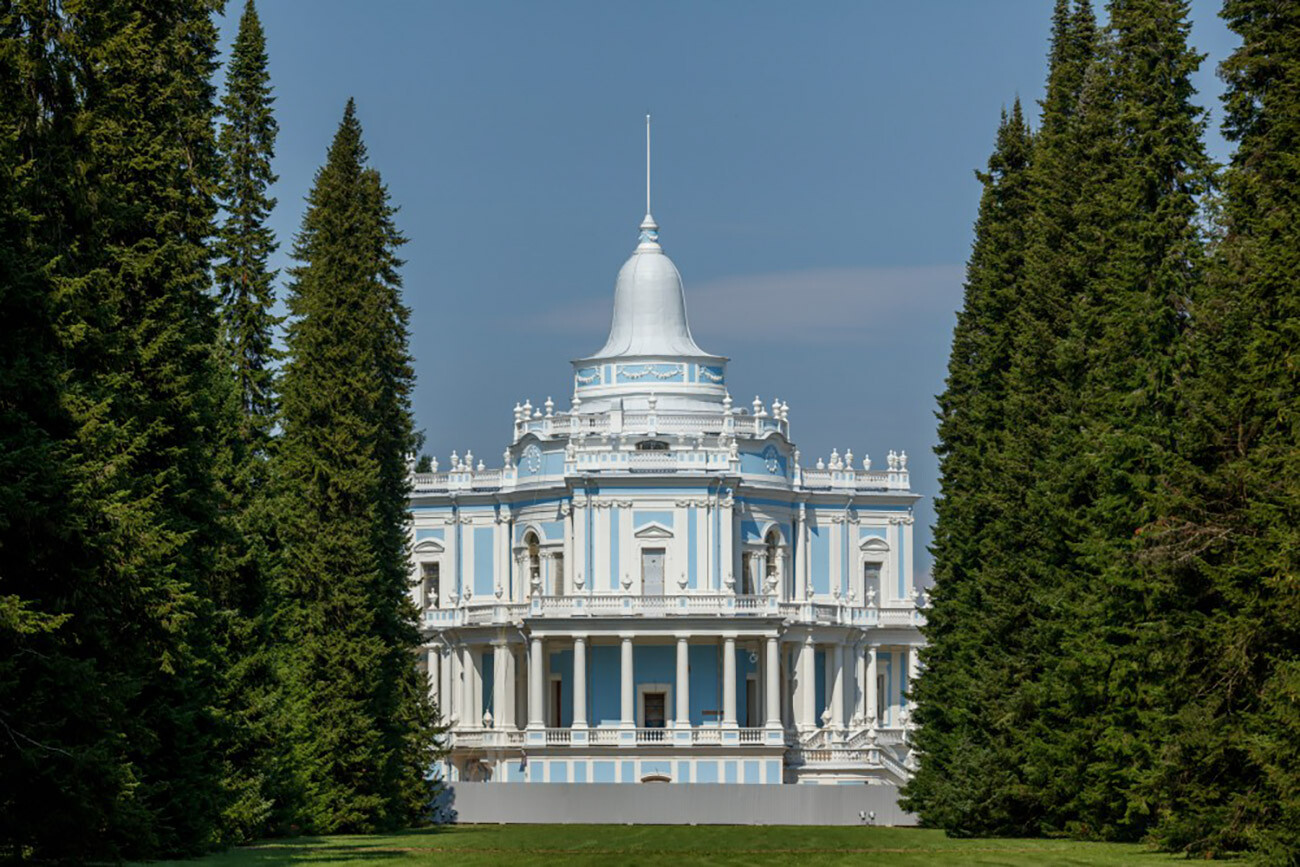
The three-story stone building, topped by a round drum, is decorated with carved garlands, with a bell-shaped dome.
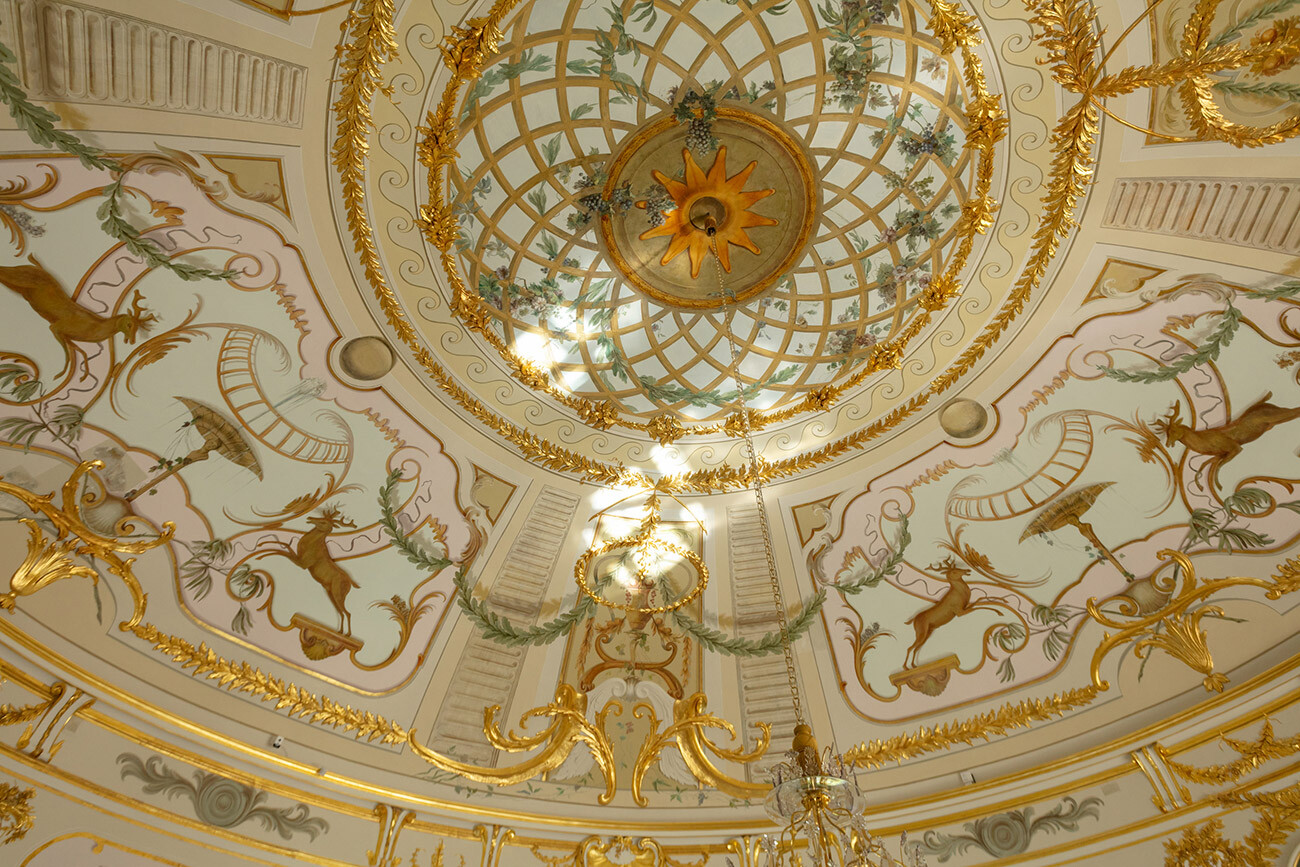
The interiors are even more stunning than the facade. Each of the halls has a unique design, which were recently restored and opened to the public in July 2022.
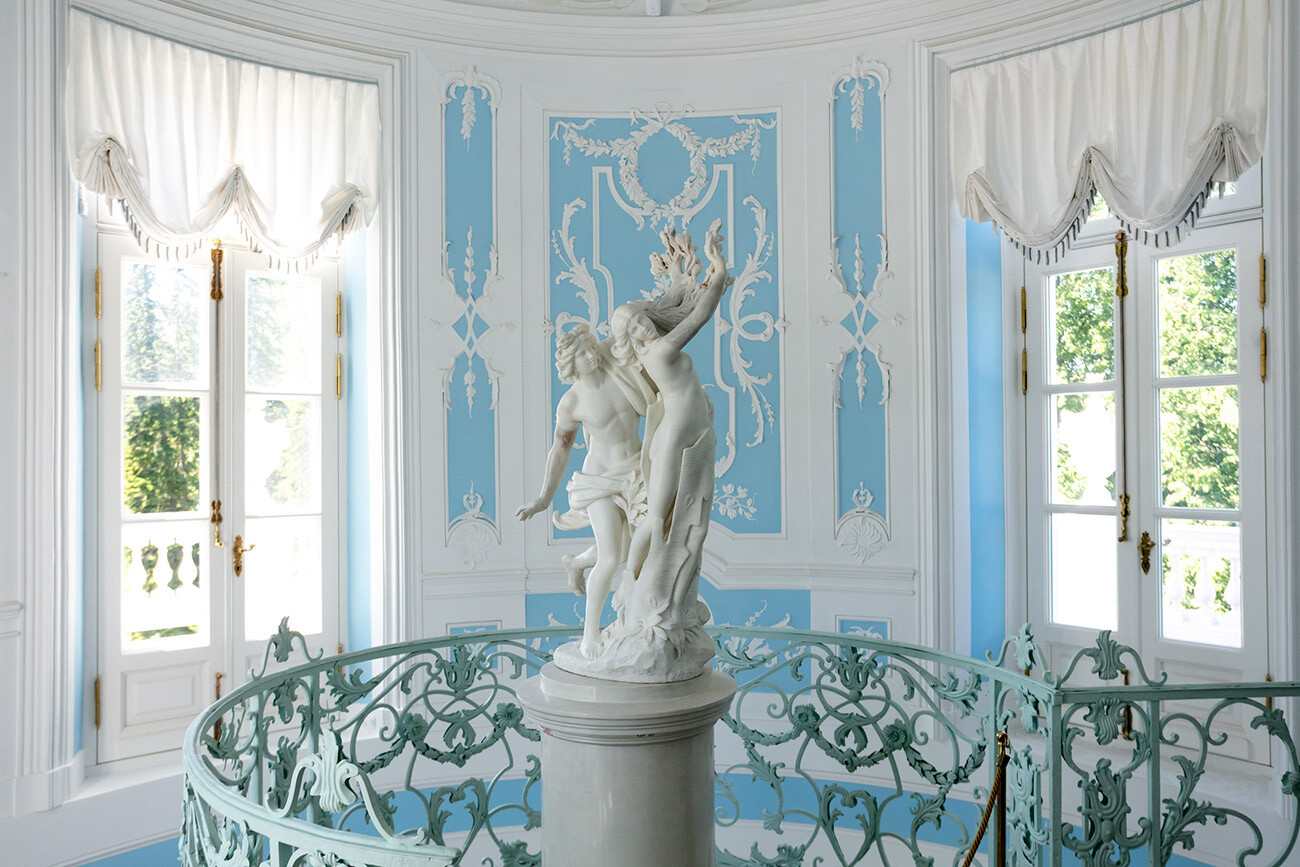
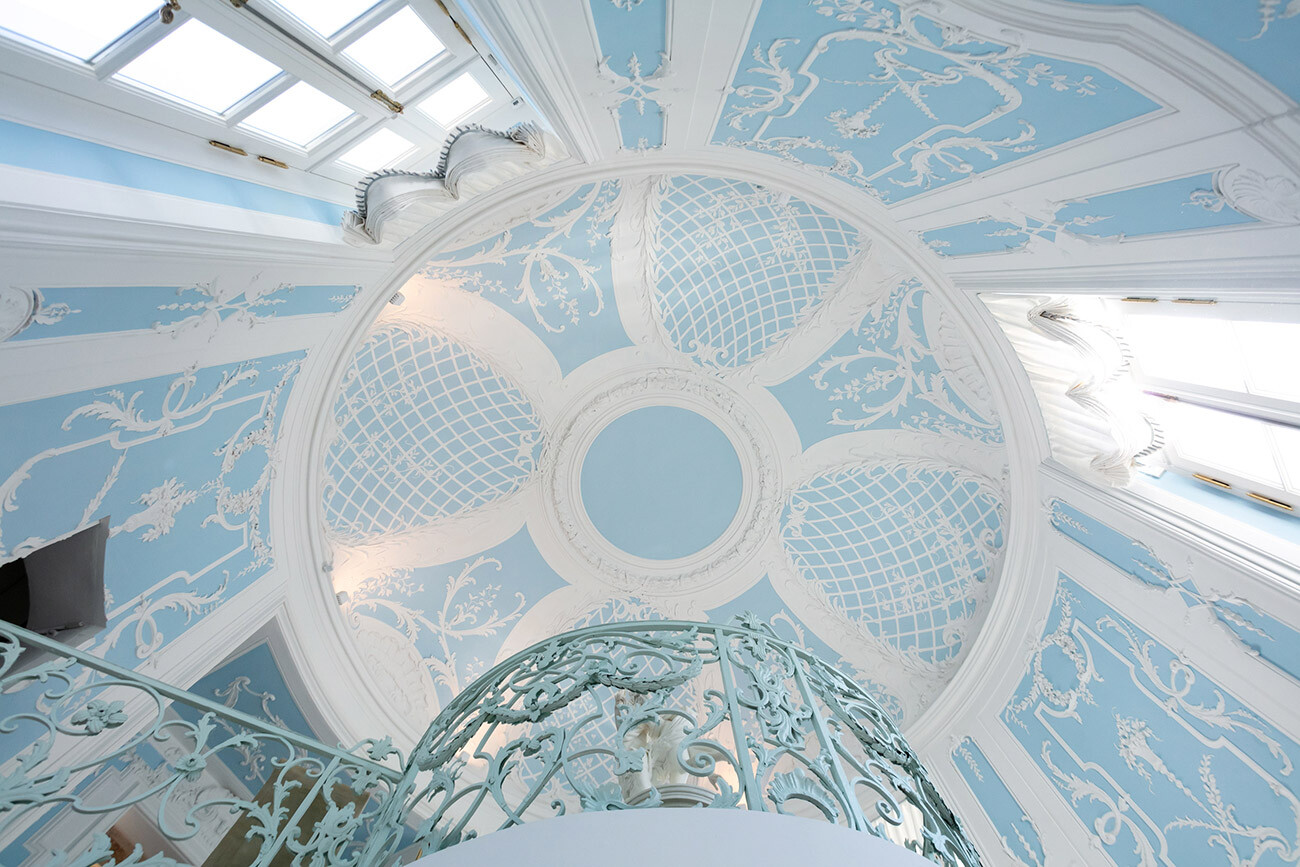
The round hall is decorated with paintings, molding and gilding by Russian and Italian masters.
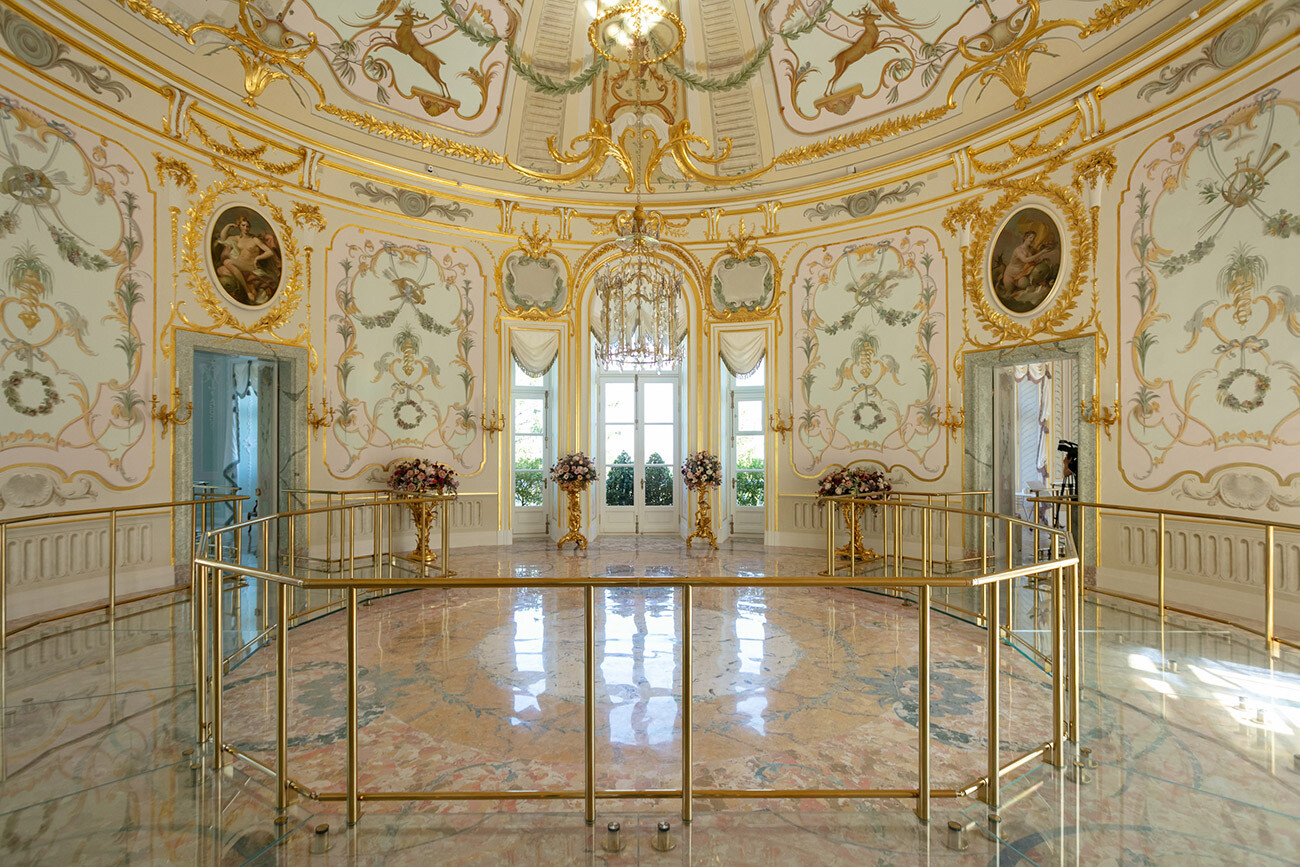
Because the pavilion turned out to be that beautiful, Catherine the Great used it not only for leisure, but also held gala dinners and receptions, including for foreign ambassadors and even a dinner in honor of Swedish King Gustav III.
